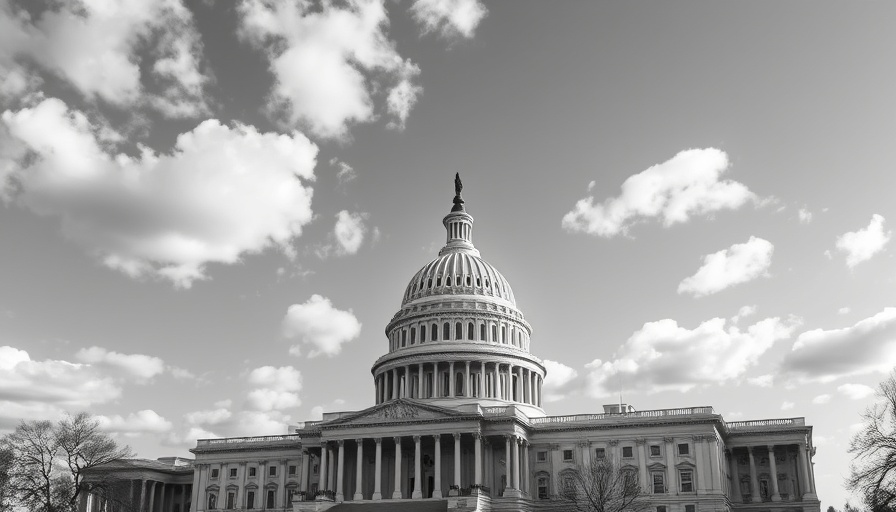
The Critical Impact of Budget Cuts on Seniors
In a historic move, the House of Representatives has voted to enact significant budget cuts affecting vital assistance programs for older adults, primarily Medicaid and the Supplemental Nutrition Assistance Program (SNAP). Holding a razor-thin margin of 218-214, the budget reconciliation bill (H.R. 1) has garnered a sweeping response from advocates for the elderly, with widespread concern resonating throughout communities across America.
What This Bill Means for Older Americans
This legislation, which bills itself as a fiscal necessity, carries ramifications far beyond mere numbers. With over $1 trillion in cuts to Medicaid, Medicare, the Affordable Care Act (ACA), and SNAP, approximately 17 million individuals stand to lose their health coverage. The long-standing support that these programs provided for the elderly and low-income households is now at severe risk, jeopardizing their health, food security, and overall wellness.
A Staggering Departure from Historical Commitment
Reflecting on the past, the signing of Medicare and Medicaid into law by President Lyndon Johnson exemplified a national commitment to support those in need, particularly vulnerable populations such as seniors. Johnson’s words highlight the essence of this commitment: a country should not turn away from those who are suffering. However, with this new budget policy, Congress appears to have shifted from this moral obligation to the exploitation of necessity as a means to enrich the wealthy.
Voices from the Community: Advocacy and Resistance
Justice in Aging’s Executive Director, Kevin Prindiville, has articulated the distress that these proposed cuts ignite among advocates for the elderly. “Cutting Medicaid, Medicare, the ACA, and SNAP is morally indefensible,” he stated, elucidating the potentially devastating effects on the lives of millions. There’s mounting pressure on lawmakers from constituents who oppose these changes, as community advocates rally to protect these foundational programs. This collective outcry showcases the strength of community advocacy amidst an encroaching political shift.
The Future is Uncertain: What’s Next for Advocacy
As the nation grapples with these changes, the future of support for seniors hangs in the balance. Local organizations are poised to mobilize their resources to challenge the decisions made by Congress. The fight to restore or protect these essential services is not just about economic numbers but the intrinsic value of human dignity for those who depend on these programs for survival.
Community Perspectives: The Emotional Toll
For many seniors, these cuts are more than policy; they symbolize a betrayal of trust. Imagine the anxiety and fear that envelops those who relied on Medicaid for their health needs or SNAP for their daily meals. The emotional impact of potential deprivation weighs heavily on communities, creating not just a gap in support, but also a chasm of disillusionment amidst the elderly population.
Counterarguments: Perspectives on Fiscal Responsibility
Proponents of this bill argue that these cuts are crucial for fiscal sustainability. They claim that reducing government spending will pave the way for long-term economic growth. Yet, this raises critical counterarguments: is it ethical to achieve fiscal goals at the expense of vulnerable populations? Advocating for a balance between financial responsibility and human compassion is essential in these discussions.
Final Thoughts: The Ongoing Fight for Dignity
The enactment of these budget cuts represents a significant step backward in the fight for equity and support for our elderly population. It serves as a clarion call for voters, advocates, and concerned citizens to galvanize efforts toward policy reform that prioritizes the needs of society's most vulnerable. As these discussions unfold, the commitment to advocate for older adults is as crucial as ever.
Now is the time for community members to get involved, voice their concerns, and push for policies that lift up our seniors rather than tear down the services they rely on. Reach out to local representatives, join advocacy groups, and participate in community forums to ensure the voices of older adults are heard loud and clear.
 Add Row
Add Row  Add
Add 




Write A Comment